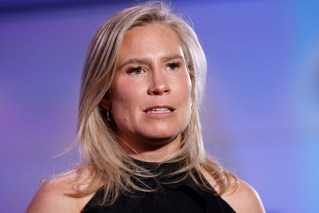Thousands of unemployed Australians take up fruit picking

Ten thousand job seekers have found work on farms in the past six months, according to new data, blowing the lid on the government’s insistence that unemployed Australians are “too lazy” to pick fruit.
Some 10,000 job seekers have taken up fruit picking work, with almost a third of those taking the job after November, data provided by the Department of Education, Skills and Employment (DESE) shows.
A further 3500 who are fit and willing to do the work applied and were rejected – calling some to question the insistence that farmers are ‘desperate’ for boots on the ground.
Last year, farmers blasted the high rate of JobSeeker, saying it was contributing to a labour shortage.
The government has also run a campaign against job seekers, claiming they are too lazy to get off the couch and pick fruit.
The industry has found itself with 26,000 missing pickers – thanks to international border closures – and millions of dollars in rotting, unpicked produce.
Farmers and industry say everyday Australians won’t get out there and do the work, while Australian job seekers say they’ve tried, but they’re either snubbed by farmers, or treated poorly and severely underpaid.

About 3500 fit job seekers willing to do the work applied and were rejected. Photo: AAP
But the data shows that between July 1 and January 31, only 17,000 jobs were offered through government-contracted job providers to unemployed Australians.
The take-up rate was more than half.
Those providers referred almost 14,000 unemployed Australians to harvest vacancies and placed about 10,500 into harvest jobs.
(Of the 3500 remaining job seekers who were referred, some may be working by now, as there is a recording delay in the system.)
But the others, likely thousands, who met the requirements of being fit and willing to do the work, applied and were rejected.
“Not all referrals result in successful placements,” a DESE spokesperson said.
“While Harvest Trail Services providers assess suitability of job seekers for the relevant harvest vacancies, final acceptance of the worker rests with the employer.”
The minister in charge of DESE, Michaelia Cash, did not answer The New Daily’s questions about whether this data proved the harvest labour shortage could actually be filled by workers.
Unemployed Workers’ Union spokesperson Kristin O’Connell said it was fantastic to see 10,000 people were able to find work through this harvest trail program.

Farmers are complaining of no workers, but Australians say they can’t get jobs. Photo: AAP
“It makes very clear that the government is either negligent or lying when they say that people are not actually moving into work off unemployment payments when they’re being given these opportunities,” she said.
She said it was absolutely possible to get unemployed workers to fill the labour shortage, but the number of rejections suggested some farmers didn’t want to employ Australians.
It clearly shows that there are some employers who have no interest in giving people opportunities, but actually have another agenda.
“Which is to put pressure on the government to meet their demand to help them get cheaper labour that’s easier to exploit.”
Stigma in employing Australians
Job providers are just one way locals looking to take up picking work land a place on the harvest trail.
Hostels and social media are the most popular ways people look for farm work.
Harry McKibbin, 28, lost his job at a gym in Sydney when the pandemic hit.
He picked up his stuff, drove to Cairns and has been working on farms since December.
“There’s definitely a stigma around hiring Australians – like they think they’re lazy and don’t work,” he said.
“If you’re messaging someone [about a job] you don’t say ‘I’m Australian’, say you’re interested. I think if you give them too much info, it might be a negative.”

Harry McKibbin, 28, has been picking fruit since December.
Mr McKibbin has started looking for other work – he doesn’t mind the long hours, but it’s the low pay that has made it unviable in the long term.
“There have been some farms that treat their workers better than others. I feel like some farmers are aware of the needs of workers and some are oblivious,” he said.
“If we want to get our fruit picked we have to treat the workers with a bit of care and forethought. They’re not robots.”
The constant supply of backpackers and seasonal workers had meant farmers didn’t have to think about their responsibility to provide decent pay and better working conditions, he said.
“That’s been part of the problem. Previously they’ve had so much supply of labour, farmers can be like slave drivers to a certain extent,” he told TND.
Instead of the relocation grants, which he said he hadn’t bothered to apply for because they were so complicated, the government should offer tax breaks to those working the harvest trail, he said.
“They need to take better care of the workers, especially if they want Australians to go out and do it,” he said.
Wanted work and couldn’t get it
Australians across the country have told The New Daily they landed well-paying picking jobs and loved it – while others have really struggled to get the work.
Lee Collett, 42, said she was travelling around Queensland with her husband late last year when they decided to pick fruit for a few extra dollars.
“Pretty much every time we tried to talk to someone about fruit picking their first question was ‘What visa do you have?’ Most of them straight up said ‘Nah we only want backpackers’,” she told TND.

Some Australians have struggled to find work on farms.
“We’re both fit and energetic. I’m a nurse, he is a landscaper. We would have picked it up easily.”
The pair tried six farms before giving up and driving to the Gold Coast, where she landed a job at the council.
“When we were trying, they said there was no one to pick the fruit and the price was going to go up dramatically,” she said.
“They should give Aussies ago. It’s disheartening.”
Location, location, location
At the start of the pandemic, Matthew Trotter, 25, was ringing about 20 farms a day.
His German girlfriend had to do the work so she could get her visa – and he was determined to go with her.
“It was pretty hard to find the work. The process can be difficult,” he said.
They tried Bundaberg, known as ‘scam town’ among backpackers, but no one would give them a job.
Eventually, they landed one in Far North Queensland, and it was so good they stayed for seven months. They were paid an hourly rate and treated well by the farmer, he said.
“At the end of the season we stayed so long, we got bonuses,” he said.
“In my case, he was happy to have us there – I got so lucky.”
- Do you know more? Contact Cait Kelly on [email protected]








